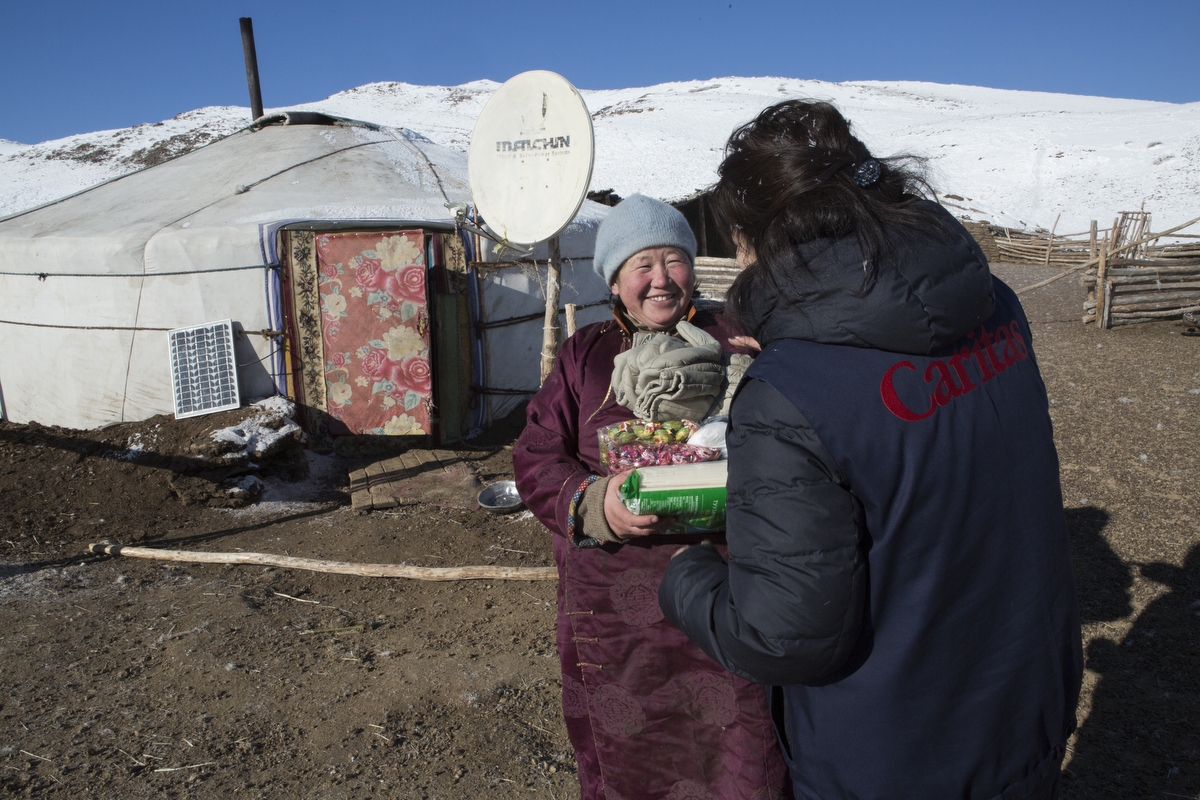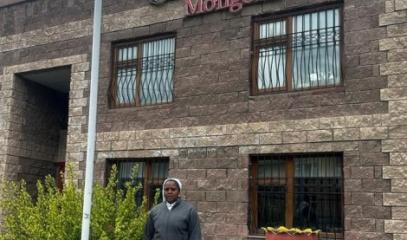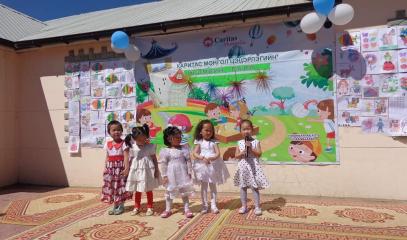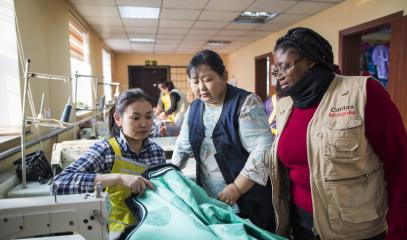Church’s great outreach among Mongolia’s herders, women and children
Pope Francis flies out tonight on his historic trip to the country of the steppes. Kenyan-born Sister Anne Wangeci Waturu, head of Caritas Mongolia, speaks about it. “We try to meet the specific needs of people who live in peculiar social and weather conditions,” she says. This includes help to protect livestock and family gardens to deal with the consequences of climate change.
Ulaanbaatar (AsiaNews) – In Mongolia, zud refers to extremely snowy and cold winter snaps that can cause large-scale livestock losses, with critical consequences for the nomadic herder communities who live in the steppes and rely on sheep, goats, cattle and camels for their survival.
The particularly harsh zud of 1999-2000 killed three million animals, stirring the country’s small and recently formed Catholic Church to set up a social support network, which officially became Caritas Mongolia ten years later.
Currently, the charity helps thousands of people through various projects in both rural and urban areas under the leadership of Kenyan-born Sister Anne Wangeci Waturu with headquarters in Ulaanbaatar’s Bayanzurkh district.
The Consolata missionary arrived in the Asian country in 2016. What she has to tell about the initiatives she coordinates fits perfectly with the image described by Pope Francis in last Sunday’s Angelus – a Church “small in numbers, but lively in faith and great in charity” – a few days before he leaves Italy this evening on a journey that will last until 4 September.
“We try to meet the specific needs of people who live in peculiar social and weather conditions,” says the 43-year-old nun, who works with 30 employees and more than 120 volunteers, in a community of 1,500 members.
“Although Mongolia is growing, a large proportion of the population remains on the margins of this development, starting with the families who live in gers (yurts), traditional tents in felt, across large areas of the capital,” Sister Anne explains.
They “migrated from the steppes where they face very harsh conditions, especially in winter, when the cold reduces job opportunities, in construction and tourism for example, and increase the need for heating fuel.”
Caritas is especially active among deprived groups working with local administrations, providing food and basic items to the poor.
A kindergarten set up in the ger district of Bayanhushu takes in children from needy households, often headed by single mothers.
“We host 30 children during the day, in a new and well-heated building, and we have a library where 40 children aged 6 to 12 can do their homework and read. They can also get a hot meal.”
“We have tried to provide health and dental care, sometimes with the help of volunteer physicians who offer us their support,” Sister Anne notes.
In the same facility, Caritas has a room for a sewing programme, where women can train to become seamstresses and make some money.
Another programme is designed to help male inmates become good fathers. “Domestic violence is unfortunately far too frequent,” laments the missionary.
Action in the countryside is also crucial. Zud periods are increasingly recurrent due to climate change, generally after unusually dry summers, when livestock is unable to feed enough to face the long winters.
“Faced with emergencies, we guarantee food for people and their livestock and help prevent herd deaths by providing heavy fur covers for the frailest animals,” Sister Anne explains.
“Thanks to the car provided by some foreign Caritas we have been able to support three hundred families, between Bulgan and Khövsgöl province, in the north.”
Urgent action is increasingly needed because of the growing desertification, which badly affects livestock’s capacity to feed itself.
One of the key projects entails environmental sustainability and food security through support for greenhouse farming and family gardens in marginal areas.
“Traditionally, Mongolians are not farmers and rural diets do not include vegetables, but climate change, as well as health factors, make it important to change their habits. For this reason we teach how to grow vegetables and preserve them, evaluate the quality of the land, and how to use household waste to make fertiliser.”
Three hundred families are already benefiting from agricultural and nutritional training in Ulaanbaatar, Bulgan, Tôv, but also in the provinces of Gobi-Altaj, on the southern border with China’s Xinjiang region and in the picturesque area of Uvukhangai.
This work sees Mongolia’s small Church at the forefront of the challenges Mongolia faces today, whether in the steppes, the taiga or the capital’s overcrowded outskirts.
05/09/2023 18:46
03/09/2023 16:32










.png)










